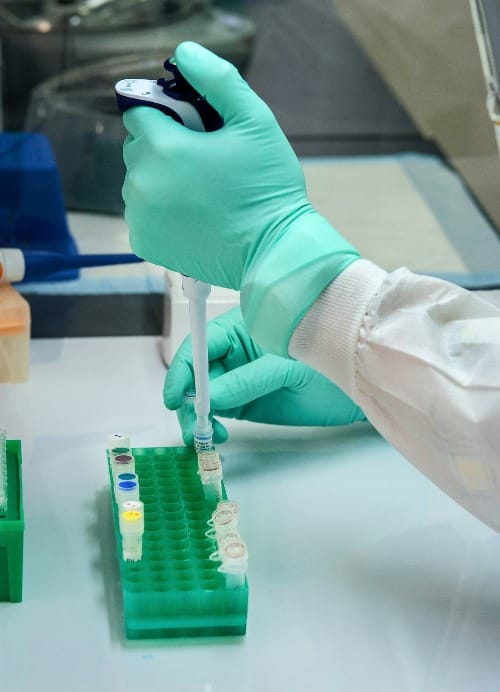In recent years, the concept of "biohacking" has gained significant attention in the health and wellness sphere. Promising quick fixes and shortcuts to optimal health and longevity, biohacking has captured the imagination of many seeking to improve their well-being. However, experts like Dr. Peter Attia argue that this trend may be sending the wrong messages about truly effective approaches to health and longevity. This article explores why biohacking might be more "hack" than "bio" and what it means for the average person's pursuit of a healthier, longer life.
Key Takeaways
- Biohacking often promotes experimental and expensive interventions over proven health practices.
- The term "biohacking" implies shortcuts to health, potentially undermining the importance of consistent, long-term lifestyle changes.
- Experts argue that focusing on fundamental health practices like exercise, nutrition, and sleep is more effective than pursuing trendy biohacks.
- The biohacking trend may distract from evidence-based approaches to longevity and overall health.
- For most people, adopting sustainable healthy habits is likely to yield better results than experimenting with unproven biohacking techniques.
The Allure and Pitfalls of Biohacking
Biohacking, a term that has gained traction in recent years, refers to the practice of making changes to your lifestyle or body to improve performance, health, and longevity. While the concept may sound appealing, especially to those seeking quick solutions to complex health issues, it has drawn criticism from health experts like Dr. Peter Attia.
Dr. Attia, a prominent physician focusing on longevity and health span, argues that the very term "biohacking" is problematic. He suggests that it implies the existence of shortcuts or workarounds to achieve optimal health, potentially undermining the importance of consistent, long-term lifestyle changes 6.
The False Promise of Quick Fixes
One of the main issues with biohacking is its tendency to promote experimental, often expensive interventions over proven health practices. These can range from trendy supplements and "DNA diets" to more extreme measures like young blood transfusions or implanted devices 6. While some of these interventions may have potential benefits, they often lack robust scientific evidence to support their widespread use.
The danger lies in the false hope these quick fixes can provide. By focusing on these interventions, individuals may neglect the fundamental pillars of health that have been proven time and again to contribute to longevity and well-being.
The Importance of Fundamental Health Practices
Instead of chasing the latest biohacking trend, experts emphasize the importance of focusing on well-established health practices. These include:
- Regular exercise: Engaging in both cardiovascular and strength training exercises has been consistently linked to improved health outcomes and longevity 1.
- Balanced nutrition: A diet rich in whole foods, fruits, vegetables, and lean proteins provides the necessary nutrients for optimal health 2.
- Quality sleep: Prioritizing good sleep hygiene and getting adequate rest is crucial for physical and mental well-being.
- Stress management: Techniques such as meditation, mindfulness, and regular relaxation can significantly impact overall health.
- Social connections: Maintaining strong social relationships has been shown to have a positive effect on longevity and quality of life 3.
These fundamental practices, while perhaps less exciting than the latest biohacking trend, have stood the test of time and scientific scrutiny.
The Risk of Overlooking Evidence-Based Approaches
By focusing on biohacking, individuals may overlook or undervalue evidence-based approaches to longevity and overall health. The scientific community has made significant strides in understanding the factors that contribute to a long, healthy life. These include:
- Maintaining a healthy body weight
- Avoiding smoking and excessive alcohol consumption
- Managing chronic conditions like hypertension and diabetes
- Regular health screenings and preventive care
These approaches, while less glamorous than biohacking interventions, have been proven to significantly impact health outcomes and life expectancy 4.
The Potential Dangers of Unproven Interventions
Another concern with biohacking is the potential risks associated with unproven interventions. Some biohacking practices may have unforeseen side effects or interactions with existing health conditions. Without proper medical supervision, individuals experimenting with these techniques could potentially harm their health rather than improve it.
Moreover, the focus on biohacking can create unrealistic expectations about health and aging. This may lead to disappointment and frustration when quick fixes fail to deliver the promised results, potentially discouraging individuals from pursuing more effective, long-term health strategies.
A Balanced Approach to Health and Longevity
While the desire to optimize health and extend lifespan is understandable, it's important to approach this goal with a balanced perspective. Rather than seeking shortcuts through biohacking, individuals would likely benefit more from:
- Consulting with healthcare professionals: Regular check-ups and personalized advice from medical experts can provide valuable insights into individual health needs.
- Adopting sustainable habits: Focus on making small, consistent changes to lifestyle that can be maintained over the long term.
- Staying informed: Keep up with reputable health information sources, but be critical of claims that seem too good to be true.
- Embracing a holistic view of health: Recognize that physical, mental, and emotional well-being are interconnected and equally important.
- Being patient: Understand that meaningful improvements in health and longevity often take time and consistent effort.
Conclusion
While the allure of biohacking may be strong, it's crucial to approach health and longevity with a critical eye. The pursuit of quick fixes and trendy interventions can distract from the fundamental practices that have been proven to contribute to a long, healthy life. For the average person seeking to improve their health and potentially extend their lifespan, focusing on consistent, evidence-based lifestyle choices is likely to yield better results than experimenting with unproven biohacking techniques.
By prioritizing regular exercise, balanced nutrition, quality sleep, stress management, and strong social connections, individuals can build a solid foundation for long-term health and well-being. While these approaches may not promise overnight transformations, they offer a sustainable path to a healthier, potentially longer life – no hacking required.
Citations:
[1] https://www.jinfiniti.com/the-24-hottest-biohacking-trends-in-2024/
[2] https://www.insidetracker.com/a/articles/ways-to-biohack-your-healthspan-and-improve-longevity
[3] https://fortune.com/2024/01/29/biohacking-consumerization-health-care-longevity-investment-2024/
[4] https://www.longevilab.com/en/differences-between-biohacking-longevity-and-anti-aging
[6] https://peterattiamd.com/biohacking-sends-wrong-message-about-longevity/














Member discussion